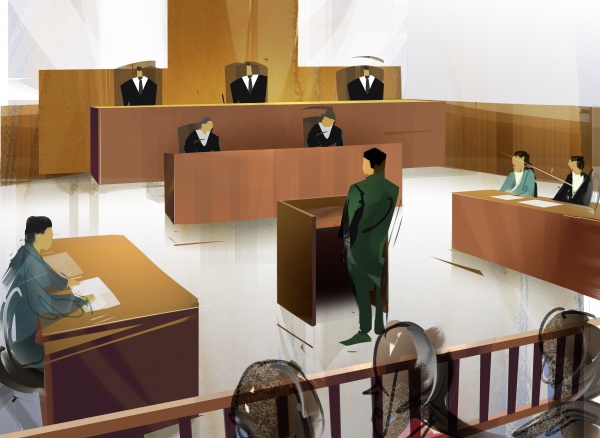Originally published by Brad LaMorgese.
The Art & Science of Oral Argument
It can be said that there is somewhat of an art and science to an oral argument for an appeal. This matter is subject to much debate. What is the best way to argue a case to an appellate court.
Modern theory seems to argue that oral argument should provide something extra for the Court of Appeals than what was provided in the briefs. It should be a Court-centered argument to be helpful to the Court of Appeals. This makes a lot of sense as the Court of Appeals and its staff will have read the briefs and the record. So an oral argument that simply regurgitates the briefs is generally not effective and does not add anything to the process.
Oral argument should anticipate the problem areas in the case and attempt to answer them for the justices hearing the argument. It will also anticipate questions the judges may have that arise from reading the briefs, and attempt to offer additional factual cites from the record or drill down in the legal authority to support the position. It may also offer different rational and logical arguments on the points made in the briefs and why the client’s position is best. It can point out problems that will result from the application of the law offered by the other side. It is also very important to offer solutions to the appellate court on how to resolve the case in the best way for the client. I’ve even heard Justices ask at oral argument, “what language should we use in our opinion conclusion if your client wins?”
Oral argument is a good last chance to try to persuade an appellate court. Proper oral argument requires preparation, a review of the record, a review of the briefs, and some original thinking about all the arguments made in the briefs. It can also involve providing the appellate court with additional authority that was released after the briefs were filed. It is a time for advocacy and persuasion, and it should not just be simply wasted by regurgitating the contents of the briefs. It is also a time to be helpful to the Court of Appeals in answering the stubborn questions that might arise, and not dodging them. It is a last chance also enunciate to the court the exact relief that you want for your client and the logic behind it.
Related Articles
- Is There a Deadline for Me to File an Appeal of a Judgment?
- Is it true that the judge has to tell me the basis of the ruling after trial?
- Should I file a motion for new trial if I receive a bad ruling from the trial judge?
- What is the process for an appeal in Texas and how long will it take?
- What does the standard of review mean on appeal in a family law case in Texas?
- What is the state court appellate process in Texas generally like?
- What is the Process to go to the Texas Supreme Court in an Appeal?
- I’ve gone to the Court of Appeals, now what relief may I get?
- A Federal Family Law Case (Constitutional Issues and International Parental Kidnapping)

The post The Art & Science of Oral Argument appeared first on ONDA Family Law.
Curated by Texas Bar Today. Follow us on Twitter @texasbartoday.
from Texas Bar Today https://ift.tt/2KQ8I0y
via Abogado Aly Website
No comments:
Post a Comment